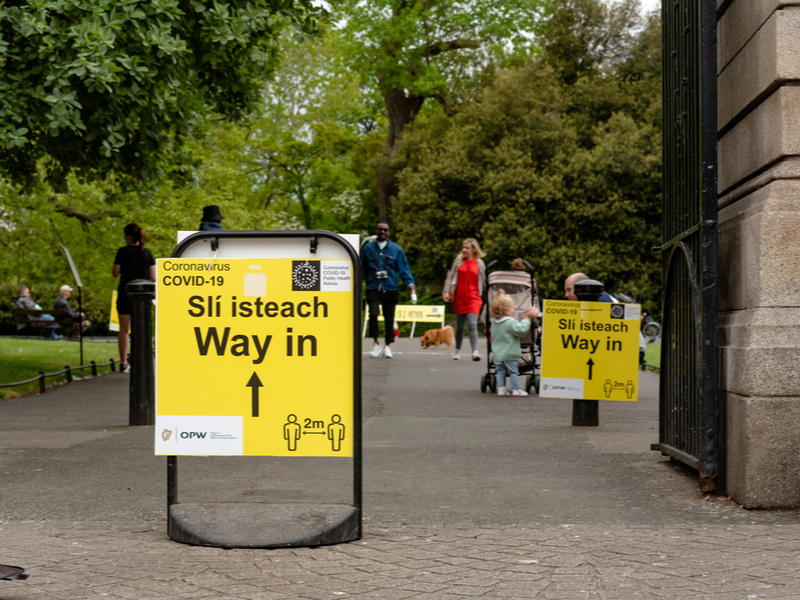One third of firms intend increasing investment spend in 2023 compared with this year, but households are more circumspect about prospects for the economy, according to the latest Bank of Ireland Economic Pulse.
The Bank of Ireland Economic Pulse came in at 67.2 in November 2022. The index, which combines the results of the Consumer and Business Pulses, was up 6.7 on last month but 16.0 lower than a year ago.
The picture was mixed again this month. Households were uneasy about the jobs’ outlook and with the cost-of-living squeeze putting a dent in Christmas spending plans, the consumer mood was more gloom than cheer as the run-up to the festive season got underway. In contrast, the Business Pulse clawed back some of the ground it lost last month.
“While the Irish economy has been benefitting from the removal of pandemic-related restrictions and strong employment growth this year, the war in Ukraine has had a knock-on effect to inflation”
The Economic Pulse surveys are conducted by Ipsos on behalf of Bank of Ireland with 1,000 households and 1,350 businesses on a range of topics including the economy, their financial situation, spending plans, house price expectations and business activity.
C’est la guerre
“The latest survey findings are a mixed bag, with the Consumer Pulse down on the month and the Business Pulse up,” Dr Loretta O’Sullivan, Group Chief Economist for Bank of Ireland.
“While the Irish economy has been benefitting from the removal of pandemic-related restrictions and strong employment growth this year, the war in Ukraine has had a knock-on effect to inflation. It has also led to a global slowdown.
“This is a headwind for exporting sectors including ICT, and the news of layoffs in some high profile tech companies may have unsettled households this month. However, November’s research also finds that 32% of firms expect to spend more on investment in 2023 compared with 2022.
“Though down from 38% a year ago, this is nonetheless a solid print, and with government supports helping households to mitigate increased energy and other costs, our new forecasts still have GDP growing by 4.0% next year,” O’Sullivan said.
Business Pulse
“November saw the Business Pulse claw back some of the ground it lost in October,” O’Sullivan continued.
The Business Pulse came in at 73.0 in November 2022, up 8.8 on October but 12.3 lower than a year ago. While the Industry Pulse slipped again this month, the Services and Construction Pulses advanced.
The Retail Pulse was a touch firmer as well, albeit the survey findings point to a more muted Christmas trading period than usual – two thirds of retailers expect their turnover to be the same or higher than last year versus 85% in the pre-pandemic era. This month’s research also took a look at businesses’ investment plans. The data show that a third intend to increase spending in 2023 compared with this year, with the replacement of worn-out plant and equipment, expanding production capacity, streamlining processes and meeting sustainability and other objectives all on the agenda.
- Industry Pulse = 74.8 (2.9 points on the previous survey)
- Services Pulse = 72.2 (+14.3)
- Retail Pulse = 70.9 (+1.1)
- Construction Pulse = 79.0 (+3.9)
Consumer Pulse
“Pinched pockets appear to be tempering festive cheer among households,” O’Sullivan warned.
At 44.3 in November 2022, the Consumer Pulse was down 1.5 on October’s reading and 30.9 lower than a year ago. Households were more circumspect about prospects for the economy and the labour market this month, with 56% now expecting unemployment to increase over the next year (up from 49% last month).
On the buying front, the November survey indicates that Christmas shopping plans have also been reined in. While three in five said that they intend spending the same or more on presents this year compared with last, this is down from three in four in 2021.
Housing Pulse
“The Housing Pulse was down again in November, for a third month running,” O’Sullivan noted.
The Housing Pulse stood at 85.2 in November 2022, down 2.1 on last month and 31.3 lower than a year ago. The Central Bank of Ireland has recently announced a targeted relaxation of its mortgage rules which, all other things being equal, should support the housing market in the period ahead.
The changes are occurring in an environment of rising interest rates though and against this backdrop, households remain cautious in their assessment of price developments. While over half think house prices will increase over the coming year, almost one in five thinks they will fall.
Regional Pulse
The Bank of Ireland Regional Pulses bring together the views of households and firms around the country. The indices are calculated on a 3 month moving average basis and show that sentiment was down in Dublin and Munster and little changed in the Rest of Leinster and Connacht/Ulster in the September to November period compared with the August to October period.
Three month moving averages:
- Dublin Pulse = 74.8 (-3.0 points on the previous survey)
- Rest of Leinster = 66.6 (+0.7)
- Munster = 61.0 (-1.8)
- Connacht/Ulster = 65.2 (-0.1)





